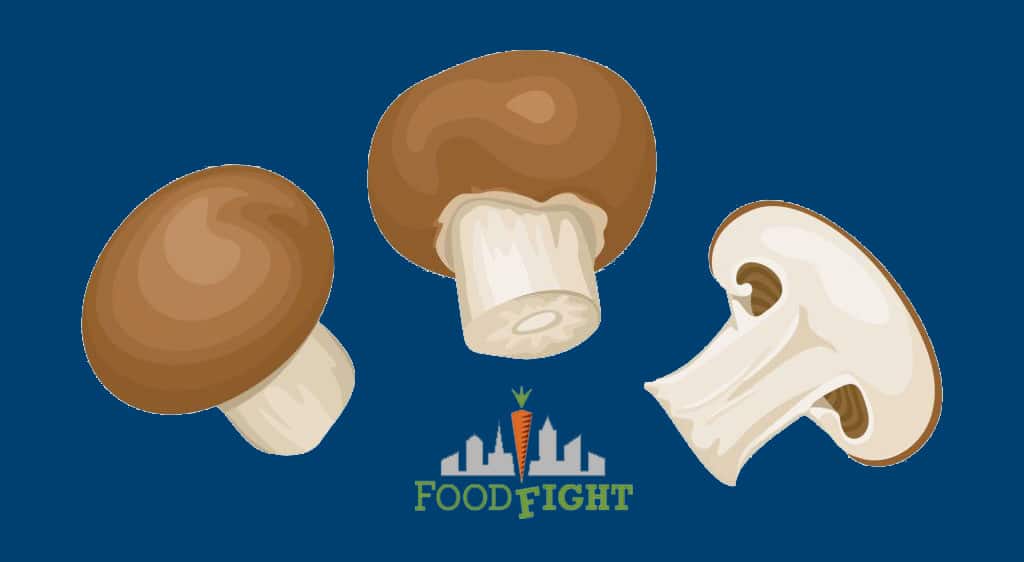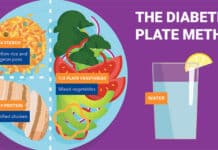Are you a mushroom lover? Do you enjoy eating them as an appetizer, snack, or side dish? You’re not alone. According to the Mushroom Council, about 10 percent of Americans regularly eat mushrooms as part of their diet.
In fact, in a survey conducted by the Mushroom Council, 98 percent of those who responded said they like or love mushrooms—and almost half called them their favorite or second-favorite mushroom.
This isn’t surprising when you consider that these tasty fungi have lots of benefits. Not only do they have high levels of antioxidants and potassium, but they are also low in calories and fat with no cholesterol.
And while research into the health benefits of mushrooms is still ongoing, some studies suggest that they may assist with weight management and type 2 diabetes.
Here’s what you need to know about this tender and tasty treat if you want to improve your nutrition and overall well-being—even if you don’t like eating them raw!
Mushrooms and Diabetes: What Does the Research Say?
Mushrooms might not be the first thing that comes to mind when you think about being healthy, but a new study from North Carolina State University researchers suggests that they're good for more than just getting high.
In fact, researchers found that the levels of antioxidants in mushrooms are higher than in any other type of food they tested and may explain their potential health benefits. [1]Sánchez, C. (2017, March). Reactive oxygen species and antioxidant properties from mushrooms. Synthetic and Systems Biotechnology, 2(1), 13–22. https://doi.org/10.1016/j.synbio.2016.12.001 [2]Pattnaik, S., Hnamte, S., Sudharshan, S. J., Dyavaiah, M., & Busi, S. (2018). Determination of Antioxidant Potential of Selected Wild Edible Mushrooms from India in a Saccharomyces cerevisiae … Continue reading
In the human body, antioxidants are fundamental for protecting cells from free radical damage caused by unstable molecules.
Our bodies have several different strategies for protecting against free radicals. The most important one is called glutathione. When we make glutathiones, it helps our bodies destroy free radicals as they form.
But there are some things that interfere with our ability to make glutathiones, like heredity and lifestyle factors like stress and smoking.
So researchers looked at the levels of antioxidants in foods and people with low glutathione levels. [3]Kalaras, M. D., Richie, J. P., Calcagnotto, A., & Beelman, R. B. (2017, October). Mushrooms: A rich source of the antioxidants ergothioneine and glutathione. Food Chemistry, 233, 429–433. … Continue reading Mushrooms were the only category that had a significant amount of antioxidants, and their levels were higher than in any other food or people.
Some other research shows that mushrooms may be beneficial for those with type 2 diabetes, but the findings are inconclusive, and more research is needed before any conclusions can be drawn.
For example, a few studies [4]Vitak, T., Yurkiv, B., Wasser, S., Nevo, E., & Sybirna, N. (2017). Effect of medicinal mushrooms on blood cells under conditions of diabetes mellitus. World Journal of Diabetes, 8(5), 187. … Continue reading [5]Lee, S. K., Ryu, S. H., Turk, A., Yeon, S. W., Jo, Y. H., Han, Y. K., Hwang, B. Y., Lee, K. Y., & Lee, M. K. (2020, November). Characterization of α-glucosidase inhibitory constituents of the … Continue reading [6]Liang, B., Guo, Z., Xie, F. et al. Antihyperglycemic and antihyperlipidemic activities of aqueous extract of Hericium erinaceus in experimental diabetic rats. BMC Complement Altern Med 13, 253 … Continue reading have suggested that eating mushrooms can positively affect blood sugar. One study found that subjects who ate mushrooms had a lower blood glucose level and area under the blood glucose curve compared to subjects who ate an isocaloric control meal.
Another study analyzed data from two dietary intervention trials, one where subjects were given dried mushrooms and another where subjects were given dried blueberry fruit.
In contrast, some studies have suggested that mushrooms can raise blood sugar levels or aren’t helpful for blood sugar management.
One study found that eating dried shiitake mushrooms (as well as blueberries and cinnamon) did not affect blood glucose levels compared to a control meal.
More research needs to be done to determine whether mushrooms have a positive or negative effect on blood sugar.
More studies are also needed to determine if certain types of mushrooms are better for blood sugar than others.
Why Are Mushrooms Good for You?
Mushrooms are one of the few plant-based foods that contain vitamin D, which is essential for good bone health.
Vitamin D is also important for lowering blood pressure, preventing type 2 diabetes and heart disease, reducing the risk of certain cancers, and improving immunity.
Mushrooms are also a good source of copper, which is essential for producing energy, forming red blood cells, absorption of iron, and many other body functions. Copper deficiency can lead to anemia and reduced immune function.
Additionally, mushrooms contain a strong antioxidant component, which protects against free radical damage, and are an excellent source of selenium, which reduces cancer risk, especially colorectal cancer.
Can Mushrooms Help With Diabetes?
There are several ways that mushrooms may help with diabetes:
- They contain compounds called polysaccharides and are high in insoluble fiber, which has been found to lower blood glucose levels in many studies.
- Mushrooms are also very low in calories and fat, which makes them an ideal food for managing weight.
- Mushrooms may help to improve insulin sensitivity, which is important for preventing and managing diabetes.
In addition, it turns out that mushrooms also boost our immune systems, fight cancer, and even protect us from heart disease. So not only does eating mushrooms help with diabetes, but it helps prevent many diseases as well.
However, more research needs to be done before we can say for certain that mushrooms can help with diabetes.
5 Ways Mushrooms Help With Diabetes
Mushrooms are not only great for people with diabetes, but for anyone who wants to live longer and healthier lives.
We've compiled a list of how eating mushrooms help with diabetes that will make you rethink how you view these delicious fungi.
- Lower Blood Glucose Levels: In many studies, the fiber in mushrooms has been found to lower blood glucose levels.
- Appetite Control: Eating a diet that’s high in fiber is associated with reduced hunger and a reduced desire to eat. This can be helpful for those who are trying to lose weight by eating less.
- Reduced Calorie Intake: A high-fiber diet is also associated with reduced calorie intake, which can help promote weight loss if you’re not exercising.
- Improved Insulin Sensitivity: Mushrooms have been found to improve insulin sensitivity in rats by increasing the amount of the hormone that’s released in response to blood sugar.
- Antioxidants: The antioxidants found in mushrooms can help protect your body from free radical damage associated with diabetes.
6 Reasons to Try Cooking with Mushrooms
Unlike other common vegetables, mushrooms are easy to cook with because they don’t require special preparation or cooking techniques.
You can cook them in many ways, such as being baked, stir-fried, sautéed, or even eaten raw in a salad.
- Mushrooms have a firm but tender texture and a hearty, rich, and meaty taste. They are delicious when cooked but can also be eaten raw in salads and sandwiches.
- Mushrooms are Low in Calories, Low in Fat, and High in Nutrients: 100 grams of mushrooms contain only 17 calories, 0.2 grams of fat, and 1.2 grams of protein. They are also a good source of biotin, niacin, selenium, and zinc.
- Mushrooms are High in B Vitamins: B vitamins are important for energy metabolism and maintaining normal nerve function.
- Mushrooms are High in Selenium: Selenium is a trace mineral that is essential for good health. It is required for the synthesis of antioxidants in the body and has been shown to reduce the risk of many types of cancers, including breast, colorectal, prostate, and pancreatic cancers. It has also been shown to reduce the risk of cardiovascular disease and act as a natural anti-diabetic agent.
- Mushrooms are High in Zinc: Zinc is essential for human health. It involves hundreds of biological processes, including immune function, wound healing, and DNA transcription.
- Mushrooms are High in Potassium: Potassium is a mineral that is essential for human health. It is important for regulating blood pressure and blood sugar levels.
Final Thoughts
Research suggests that eating mushrooms regularly can help you maintain optimal health and diabetes control.
In particular, the fiber in mushrooms has been found to be very helpful in preventing spikes in blood sugar levels. It can even help improve insulin sensitivity—an important factor in maintaining diabetes and blood sugar levels.
If you’re not a fan of raw mushrooms or don’t like them, don’t worry. Many prefer to eat mushrooms roasted or sautéed in a bit of butter. The flavor is different, but they still taste great!
If you would like to include mushrooms in your diet, start by choosing a variety of mushrooms that you like. You can also choose to buy them in your local market or grocery store.
To cook mushrooms, begin by cleaning them thoroughly. Then, cut off the stems. Next, trim the bottom portion of the stem and discard it. Finally, slice the mushrooms about an inch thick. Most mushrooms will take about eight minutes to cook.
Eat mushrooms at least twice per week to boost your immune system, lower cholesterol and blood sugar, and improve insulin sensitivity.
If you enjoy eating fresh, raw mushrooms, that’s great! However, most people prefer roasted or sautéed mushrooms, so be sure to look for those in your local market. If you don’t want to use butter, then you can just drizzle some on top of your dish.
References
| ↑1 | Sánchez, C. (2017, March). Reactive oxygen species and antioxidant properties from mushrooms. Synthetic and Systems Biotechnology, 2(1), 13–22. https://doi.org/10.1016/j.synbio.2016.12.001 |
|---|---|
| ↑2 | Pattnaik, S., Hnamte, S., Sudharshan, S. J., Dyavaiah, M., & Busi, S. (2018). Determination of Antioxidant Potential of Selected Wild Edible Mushrooms from India in a Saccharomyces cerevisiae Model System. International Journal of Medicinal Mushrooms, 20(6), 569–580. https://doi.org/10.1615/intjmedmushrooms.2018026531 |
| ↑3 | Kalaras, M. D., Richie, J. P., Calcagnotto, A., & Beelman, R. B. (2017, October). Mushrooms: A rich source of the antioxidants ergothioneine and glutathione. Food Chemistry, 233, 429–433. https://doi.org/10.1016/j.foodchem.2017.04.109 |
| ↑4 | Vitak, T., Yurkiv, B., Wasser, S., Nevo, E., & Sybirna, N. (2017). Effect of medicinal mushrooms on blood cells under conditions of diabetes mellitus. World Journal of Diabetes, 8(5), 187. https://doi.org/10.4239/wjd.v8.i5.187 |
| ↑5 | Lee, S. K., Ryu, S. H., Turk, A., Yeon, S. W., Jo, Y. H., Han, Y. K., Hwang, B. Y., Lee, K. Y., & Lee, M. K. (2020, November). Characterization of α-glucosidase inhibitory constituents of the fruiting body of lion’s mane mushroom (Hericium erinaceus). Journal of Ethnopharmacology, 262, 113197. https://doi.org/10.1016/j.jep.2020.113197 |
| ↑6 | Liang, B., Guo, Z., Xie, F. et al. Antihyperglycemic and antihyperlipidemic activities of aqueous extract of Hericium erinaceus in experimental diabetic rats. BMC Complement Altern Med 13, 253 (2013). https://doi.org/10.1186/1472-6882-13-253 |






